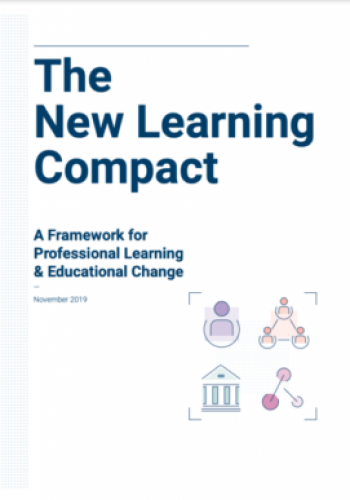New Learning Compact Institute on Professional Learning
The New Learning Compact Institute helps campuses develop an action plan for engaging large numbers of educators in the high-impact professional learning processes needed to scale effective pedagogy and student support. The NLC Institute supports campus teams in a “systems thinking” approach to leveraging local resources and redesigning current program activity for long-term benefit, building capacity as adaptive learning organizations better prepared to cope with a future of on-going change.
The New Learning Compact Institute is a sustained, multi-part virtual institute that combines self-assessment and planning working with cohorts of diverse institutions, including community colleges, broad access public institutions.
The work was made possible with resources from the Every Learner Everywhere project of WCET (the WICHE Cooperative for Educational Technologies).
Two Key Resources Used by the New Learning Compact Institute
The NLC Framework is a cohesive change-making resource that includes: Core Values, Core Principles, Inquiry Questions for Self-assessment and Planning, and Guidelines for Implementation and Evaluation. You’ll find not only an overview of the overarching Framework and its theory of change, but also exercises designed specifically to guide you and your institution in assessing current practice and developing a strategy for advancing high-impact professional learning.
Achieving the Dream’s Teaching and Learning Toolkit builds on and deepens the value of the NLC Framework. Grounded in research and informed by the strong work of network colleges, ATD designed this resource to support college teams in building institutional professional learning capacity and nurturing a culture of teaching and learning excellence. The Toolkit links the Framework to an exploration of evidence-based pedagogies and holistic student support. It synthesizes research from the field, with links to professional learning resources and case studies that illustrate and nuance the Framework’s Core Principles. It offers you and your team a rich array of worksheets and planning templates to take this work forward
Resources from the Community Conversations
In Spring 2021 the NLC and ATD organized a series of conversations with four national leaders in professional learning. Using a “flipped classroom” model, each of the four shared a pre-recorded conversation on a selected topic. Then we gathered as a community to raise questions and have a free-flowing exchange. We’ve gathered the resources that surfaced in this process.
“ENGAGING ADJUNCT AND CONTINGENT FACULTY IN HIGH IMPACT PROFESSIONAL LEARNING”
WITH PROFESSOR ADRIANNA KEZAR
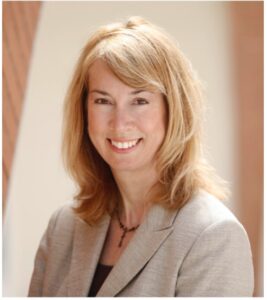
A nationally-renowned expert on changing faculty trends and issues of diversity and equity, Adrianna Kezar is the co-director of USC’s Pullias Center for Higher Education and the author of The Gig Academy (2019). Known for her insights into leadership and change in higher education, Dr. Kezar directs the Delphi Project on the Changing Faculty and Student Success. She and the Delphi Project have assembled a trove of research and resources on ways to support part-time faculty. Dr. Kezar is a contributing author of The New Learning Compact: A Framework for Professional Learning and Educational Change.
Resources shared during the Community Conversation (held on March 15, 2021, 4-5pm EST)
Kennesaw State Adjunct Faculty Learning Resources
Professor Becky Packard’s (Mount Holyoke) Faculty Mentoring Resources
Selected Resources by Dr. Adrianna Kezar
- Culver, KC, Harper, J. and Kezar, A. (2021). Using Design for Equity in Higher Education for Liberatory Change: A Guide for Practice. Los Angeles: University of Southern California, Pullias Center for Higher Education.
- Kezar, A., Holcombe, E., Dizon, JPM., and Vigil, D. (2021). Shared Equity Leadership: Making Equity Everyone’s Work. Washington, DC: American Council on Education; Los Angeles: University of Southern California, Pullias Center for Higher Education.
- Kezar, A. (2017). Foreward. In Fuller, R., Brown, M.K., and Smith, K, eds. Adjunct faculty voices: cultivating professional development and Community at the Front Lines of higher education. Stylus Publishing, LLC.
“BUILDING A CULTURE OF TEACHING AND LEARNING”
WITH PROFESSOR MARY DEANE SORCINELLI
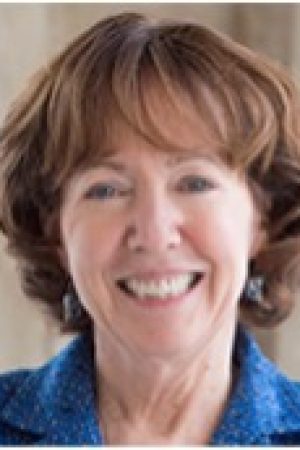
Dr. Mary Deane Sorcinelli is a professor of English and Associate Provost at UMass Amherst, where she led the highly effective Center for Faculty and Teaching Development. Now a Senior Fellow there, she also serves as Co-PI of the Undergraduate Education STEM Initiative of the Association of American Universities. The winner of countless awards, she has authored more than 100 books and articles, including Creating the Future of Faculty Development, Faculty Development in the Age of Evidence, and the widely-used ACE/POD Matrix for Centers for Teaching and Learning. Dr. Sorcinelli is a contributing author of The New Learning Compact: A Framework for Professional Learning and Educational Change.
Resources shared in the pre-recorded video presentation.
- Condon, W., Iverson, E. R., Manduca, C. A., Rutz, C., & Willett, G. (2016). Faculty development and student learning: Assessing the connections. Indiana University Press.
- Hutchings, P. (1996). Building a New Culture of Teaching & Learning. About Campus, 1(5), 4-8.
- Kinzie, J., Landy, K., Sorcinelli, M. D., & Hutchings, P. (2019). Better together: How faculty development and assessment can join forces to improve student learning. Change: The Magazine of Higher Learning, 51(5), 46-54.
- Sorcinelli, M.D. (2014). Keynote Address. Evidence-Based Teaching: What We Know and How to Promote it On Your Campus.
Resources shared during the Community Conversation (held on March 31, 2021, 4-5pm EST)
- UVA’s 2021 Innovations in Pedagogy Summit
- National Academy of Sciences’ work on re-envisioning promotion and advancement
- Lorrain County Community College’s Library Faculty Teaching and Innovation Recognitions
- The University of Kansas’s Effectiveness of Teaching Rubric
- Lang, J. M. (2016). Small teaching: Everyday lessons from the science of learning. John Wiley & Sons.
Selected Resources by Dr. Mary Deane Sorcinelli
- ACE and POD Network A Center for Teaching and Learning Matrix
- Sorcinelli, M. D. (2020). The evaluation of faculty development programs in the United States. A fifty-year retrospective (1970s-2020). Excellence and Innovation in Learning and Teaching-Open Access, 5(2).
- List, K., & Sorcinelli, M. D. (2018). Increasing leadership capacity for senior women faculty through mutual mentoring. The Journal of Faculty Development, 32(1), 7-16.
- Yun, J. H., Baldi, B., & Sorcinelli, M. D. (2016). Mutual mentoring for early-career and underrepresented faculty: Model, research, and practice. Innovative Higher Education, 41(5), 441-451.
- Austin, A. E., & Sorcinelli, M. D. (2013). The future of faculty development: Where are we going? New directions for teaching and learning, 2013(133), 85-97.
- Sorcinelli, M. D., & Austin, A. E. (2010). Educational developers: The multiple structures and influences that support our work. New Directions for Teaching and Learning, 2010(122), 25-36.
- Fraser, K., Gosling, D., & Sorcinelli, M. D. (2010). Conceptualizing evolving models of educational development. New Directions for Teaching and Learning, 2010(122), 49-58
- Sorcinelli, M. D. (2000). Principles of Good Practice: Supporting Early-Career Faculty. Guidance for Deans, Department Chairs, and Other Academic Leaders. AAHE, Forum on Faculty Roles & Rewards, One Dupont Circle, Suite 360, Washington, DC 20036-1110.
- Sorcinelli, M. D. (2002). Ten principles of good practice in creating and sustaining teaching and learning centers. A guide to faculty development: Practical advice, examples, and resources, 9-23.
“PROFESSIONAL LEARNING AS A MULTI-VITAMIN FOR DIVERSITY, EQUITY, AND INCLUSION”
WITH PROFESSOR JOSE MORENO
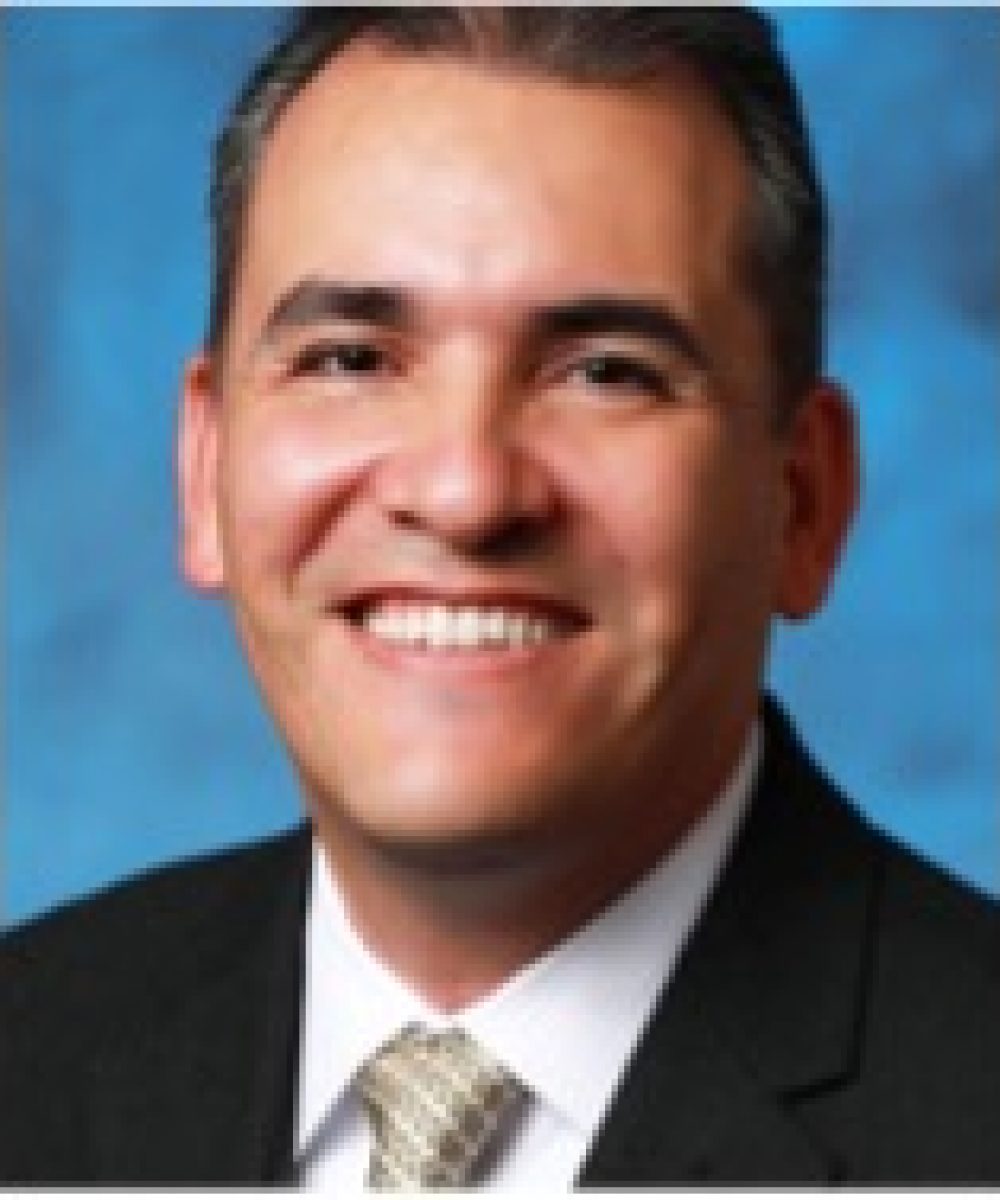
Jose Moreno is a professor of Chicano and Latino Studies at California State University Long Beach with a growing presence in national conversations about teaching, learning and equity. The past Co-Chair of the Editorial Board of the Harvard Educational Review, Dr. Moreno sits on a host of advisory councils including the National Action Council for Minorities in Engineering (NACME); Association of American Colleges & Universities (AAC&U) Making Excellence Inclusive; and the Western Association of Schools & Colleges (WASC) Student Success Task Force. The author of many books and articles, he is a contributing author of The New Learning Compact: A Framework for Professional Learning and Educational Change.
Resources shared during the pre-recorded presentation
- Eagan, K., Stolzenberg, E. B., Lozano, J. B., Aragon, M. C., Suchard, M. R., & Hurtado, S. (2014). Undergraduate teaching faculty: The 2013–2014 HERI faculty survey. Los Angeles: Higher Education Research Institute, UCLA.
- Han, H. S., Vomvoridi-Ivanović, E., Jacobs, J., Karanxha, Z., Lypka, A., Topdemir, C., & Feldman, A. (2014). Culturally responsive pedagogy in higher education: A collaborative self-study. Studying Teacher Education, 10(3), 290-312.
- Achola, E. et al., (2020). Faculty Inquiry Group Development of a Culturally Responsive Pedagogy Rubric for Reflection and Observation, unpublished manuscript.
- Bonilla-Silva, E. (2006). Racism without racists: Color-blind racism and the persistence of racial inequality in the United States. Rowman & Littlefield Publishers.
Resources shared during the Community Conversation (held on April 16, 2021, 4-5pm EST)
- Ladson‐Billings, G. (1995). But that’s just good teaching! The case for culturally relevant pedagogy. Theory into practice, 34(3), 159-165.
- Moreno, J. F., Smith, D. G., Clayton-Pedersen, A. R., Parker, S., & Teraguchi, D. H. (2006). The revolving door for underrepresented minority faculty in higher education. The James Irvine Foundation Campus Diversity Initiative Evaluation Project.
Selected Resources by Dr. Jose Moreno
- Moreno, J. F. (Ed.). (1999). The elusive quest for equality: 150 years of Chicano/Chicana education. Harvard Education Press.
- Maruyama, G., Moreno, J. F., Gudeman, R. H., & Marin, P. (2000). Does diversity make a difference? Three research studies on diversity in college classrooms. American Council on Education
“ENGAGING STUDENTS AS PARTNERS IN PROFESSIONAL LEARNING PROGRAMS”
WITH PROFESSOR PETER FELTEN
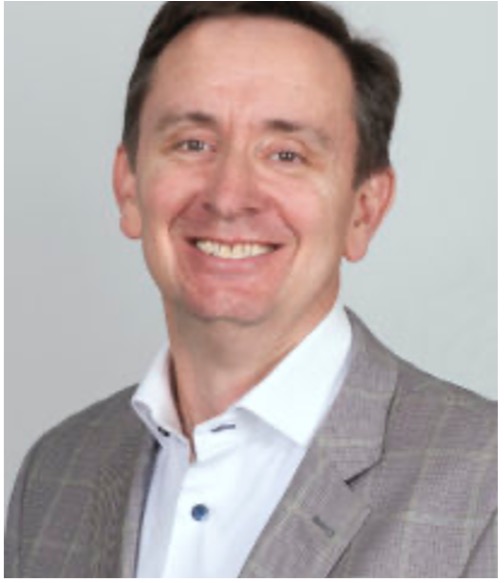
Dr. Peter Felten is executive director of the Center for Engaged Learning, assistant provost for teaching and learning, and professor of history at Elon University. His most recent book, (co-written with Leo Lambert), is the acclaimed Relationship-Rich Education: How Human Connections Drive Success in College (2020). A past president of the POD Network, Peter is co-editor of the International Journal for Academic Development, on the advisory board of the National Survey of Student Engagement (NSSE), and a fellow of the John N. Gardner Institute for Excellence in Undergraduate Education, a foundation that works to advance equity in higher education. He is a contributing author of The New Learning Compact: A Framework for Professional Learning and Educational Change.
Resources shared during the pre-recorded presentation
- Cook-Sather, Alison and Dunusinghe, Kaushiki “Introduction: Faculty-Student Collaboration in Developing an Innovative Collegewide Program,” Teaching and Learning Together in Higher Education: Iss. 7 (2012)
- North Carolina A&T Provost Scholars
- National Institute for Learning Outcomes Assessment (2018, February). The assignment charrette toolkit. Urbana, IL: University of Illinois and Indiana University, National Institute for Learning Outcomes Assessment (NILOA).
Resources shared during the Community Conversation (held on April 27, 2021, 3-4pm EST)
Selected Resources by Dr. Peter Felten
- Elon University’s Center for Engaged LearningFelten, P., & Lambert, L. M. (2020).
- Relationship-rich education: How human connections drive success in college. JHU Press.
- Felten, P. (2019). Emotion and partnerships. International Journal for Students as Partners.
- Cook-Sather, A., Bovill, C., Felten, P., & Cook, M. (2014). Engaging students as partners in learning and teaching : a guide for faculty (First edition.). Jossey-Bass.
- Felten, P. (2013). Principles of good practice in SoTL. Teaching and Learning Inquiry, 1(1), 121-125.
To learn more about the New Learning Compact, the NLC Institute and the ATD Toolkit and Institutes, please contact NewLearningCompact@gmail.com.

